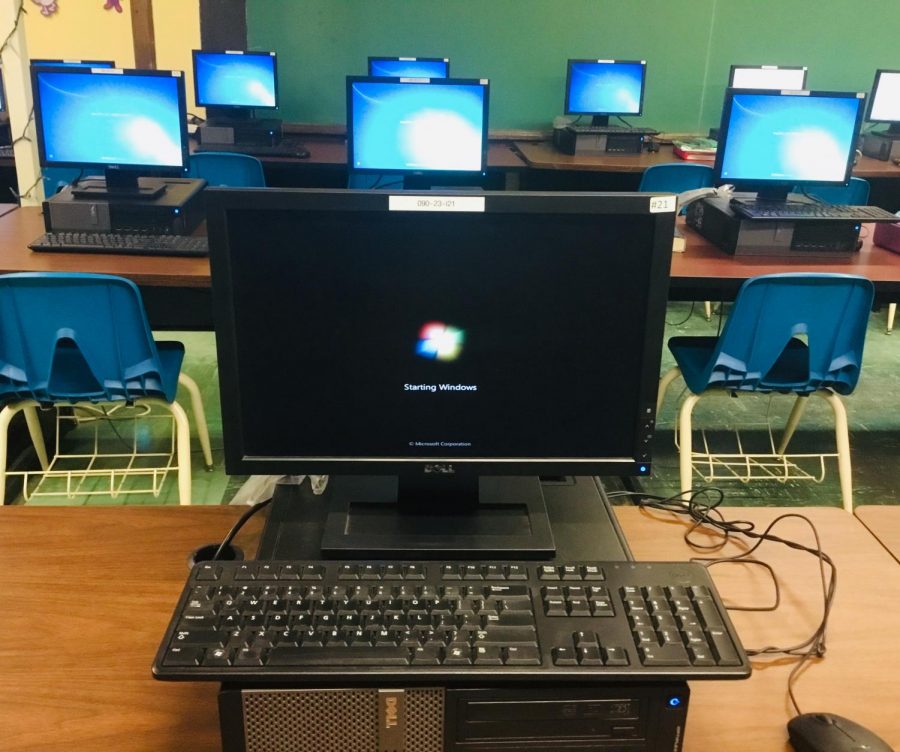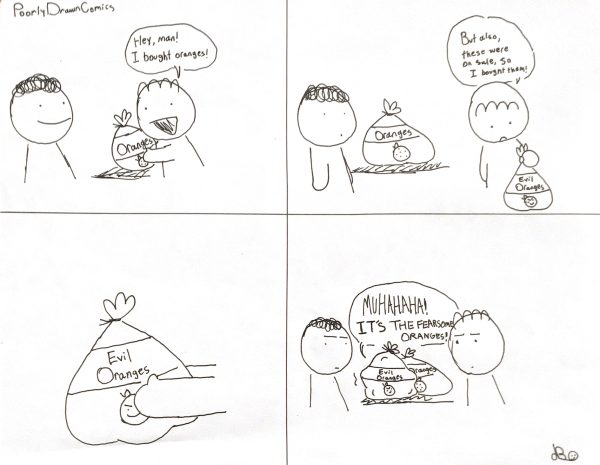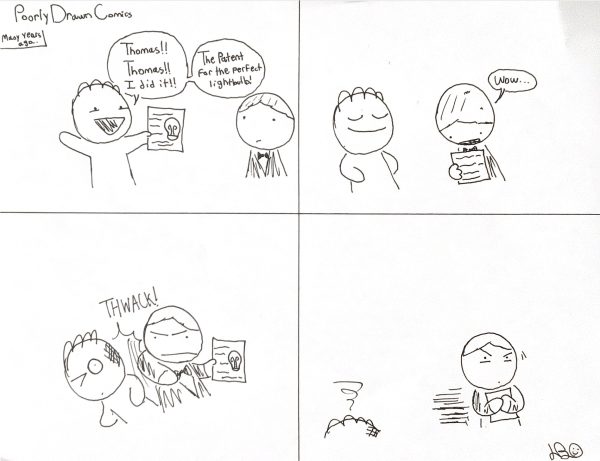The Good, The Bad, And The Internet
An entrance to compendiums of information—sitting on a table.
Apr 29, 2019
Forty years ago, researching a certain topic took hours spent in the library, flipping through loads of books. Now, it can be done in the bat of an eye and a click. However, has this newfound access to knowledge done more harm than good?
The History
According to Who invented the internet? – HISTORY, the internet, or more specifically, the World Wide Web (www.), was founded in 1990, and it has been less than thirty years since it was born. Countries like US, Germany, UK, and Japan have the highest penetration of internet users一a four out of five people are users.
Being one of the greatest tools the world has created, yet also an issue that ravages it, the internet has its own pros and cons.
The Advantages
The internet has improved many different fields, such as education, access to knowledge, entertainment, etc. It is a milestone in the history of inventions humanity has created, and encourages anyone to add their own opinions or create new ones, whether it be on message boards一i.e. Reddit, Quora一or social media.
Add communication! We can send a quick message halfway around the world, while not moving an inch. One time ago, that would have been called a miracle一or witchcraft depending on what time period specified.
The speed and efficiency of the internet is so rapid, that people actually find it irritating when the process takes more than a minute.
The Disadvantages
However as the internet grows and flourishes, its side effects become more and more pronounced. As reported by https://techspirited.com/internet-facts-statistics, two percent of worldwide internet users are either depressed or addicted. That’s a whopping average of seventy million people.
It also has a tendency of not being used correctly, especially by students. The internet, or particularly online private information, also breaks open the door for internet piracy and other online crimes. Every ten seconds there is a cyber crime around the world. Just imagining how many crimes are committed while reading this article or doing any menial task is mind-blowing.
For the younger audience, cyber bullying is also a major issue. Although these issues are slowly diminishing, the fact remains they still are there.Not to mention, it can sap away time needed for more important pursuits, like physical activity or studying.
The Problem
With all this innovation, how do we control our usage of technology to be healthy yet useful? And how much should our usage even be?
The pros and cons of the internet is a raging debate that has plagued everyone since its inception. The difficult part is the fact that nearly everyone is affected by the internet and everyone has their own opinions on it.
WMS’s Outlook
Most people had a mixed, but still favorable opinion on the internet and agreed it depended on the manner of using. Zaira Caballo, a sixth grader said, “It’s good, depending on your usage.” Julian Reid, another sixth grader, agreed as he said, “it’s good not to be on it too much.” Kayla Ruiz, an eighth grader, also said, “I think you need to be careful.”
Anna Zvoc, a seventh grader, also said that it “depends on how long the person is on it”. Anthony Reyes, another seventh grader plainly said, “good” when asked on his impression on the internet. After asking 2 students from each grade, the average amount of hours spent daily was 4 hours.
The teachers had the same sort of view, although they explained their ideas more. Mrs. Moorjani said, “It all depends upon the perspective of the child or what the child is thinking” and explained her own family’s firm policies. Mr. Blackmore said he believed in the motto, “Education first, then internet,” and thought there should be a type of reward system to encourage yet limit kids, until they were ready to make their own choices. He also tries to not use technology unless necessary. Ms. Rodak, when she reacted to the statistics, wasn’t even surprised and said she “believe(s) it”.
An Answer
It is obvious that even in the small population interviewed, everyone’s answers and thoughts were diverse. So how do we come to agreement in how we should use the internet?
We have to rely on knowledge. Knowledge about what the internet can do and what it should do. Isiah Cortes, an eighth grader, after learning certain statistics about the more difficult sides of internet, said his opinion had not changed, but “it (did) impact how I’m going to use it (the internet)”.
The world is far too advanced and diverse for one set of rules to work for everyone, at least without inciting anger. We need to let people know the nitty-gritty facts and statistics, and let them choose on their own. A person with a three-hour usage a week can be more productive than one with a one-hour usage.
And perhaps, that’s irresponsible; having such a “lazy” attitude towards this issue. But it’s the best we can do, to let people make their mistakes and find what works for them.





